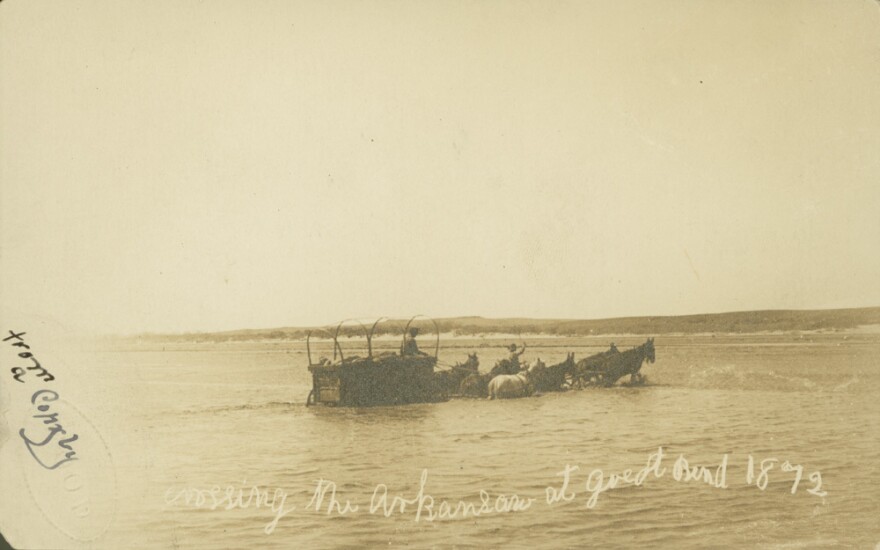I'm Hannes Zacharias, a native Kansas who grew up in Dodge City, speaking for High Plains Public Radio, Radio Readers Book Club. The book is “Running Out” by Lucas Bessire, published in 2021.
Aquifer depletion is at the heart of the book, which is drying up the Cimarron River, killing its ‘song’ as some poets proclaim, but the Cimarron is not the only example of such devastation in southwest Kansas.
The Arkansas River has been and continues to be impacted by aquifer depletion along the river alluvium. This along with ditch irrigation has now made 13% (about 200 miles) of the sixth longest river in the United States, the 45th longest river in the world, devoid of water between Deerfield, Kansas, and Hutchinson. Used for thousands of years this section the river was a major geographical landmark used to denote territory between indigenous populations, marked as a convening point for both humans and animals, and was highlighted by explorers and travelers as a major feature of and obstacle to human migration.
In 2002 Kansas completed negotiations on the Kansas-Colorado Arkansas River compact, a conflict that had been brewing in the courts since 1902. The negotiations insured water would cross the Kansas border to satisfy both ground water and ditch irrigation water rights downstream. None of the water, however, was set aside for the river itself. Between Deerfield and Hutchinson the Ark is gone and with it goes community gatherings to wash melons in the river…spring and summer floating expeditions in john boats, canoes, and stock tanks, and late-night rendezvous along the banks with the accompanying waterfowl and vegetation.
Current and future generations have lost connection to this major north American landmark and resource.
In 1541 Francisco de Coronado, looking for the fabled ‘seven cities of gold’, encounter the Ark just east of Dodge City and followed it just past, now, Great Bend.
In 1819, following the renegotiation of the Louisiana purchase with Spain, the Arkansas River became the boundary between the United States and Spain where the 100th Meridian intersected with the Ark at a location that eventually became Dodge City.
In 1844, James Josiah Webb, a merchant on the Sante Fe Trail, dreaded fording the Arkansas River at the Cimarron Cut Off and wrote “the crossing of the Arkansas was looked forward to with much solicitude, as at best it was attended with a good deal of risk and labor. The stream is about (a) third to half a mile wide with a rapid current and quicksand bottom… We found the river in fair fordable condition and crossed in one day by doubling teams, with twelve yoke of oxen to each wagon, with three or four drivers to a wagon, and plenty of men to walk beside the wagon to lift at the sides in the case of danger of turning over, or to roll at the wheels in case of danger of miring down”.
And in 1861, Harriet Bidwell Shaw, traveling the same trail, wrote about crossing the Ark, “Mules tugged & pulled but could get no foothold on this sand, and the more they tried the deeper we sank – it seemed as though the carriage was going sideways downstream with a noise like going over stones.”
The naturalist and inspiration for the National Park System, John Muir, said “The rivers flow not past, but through us, thrilling, tingling, vibrating every fiber and cell of the substance of our bodies, making them glide and sing.”
Is creating a dry riverbed killing, as Muir says, our collective human ‘song’? I believe it is.
I’m Hannes Zacharias in Lenexa, and you are listening to High Plains Public Radio and the Radio Readers book club.











